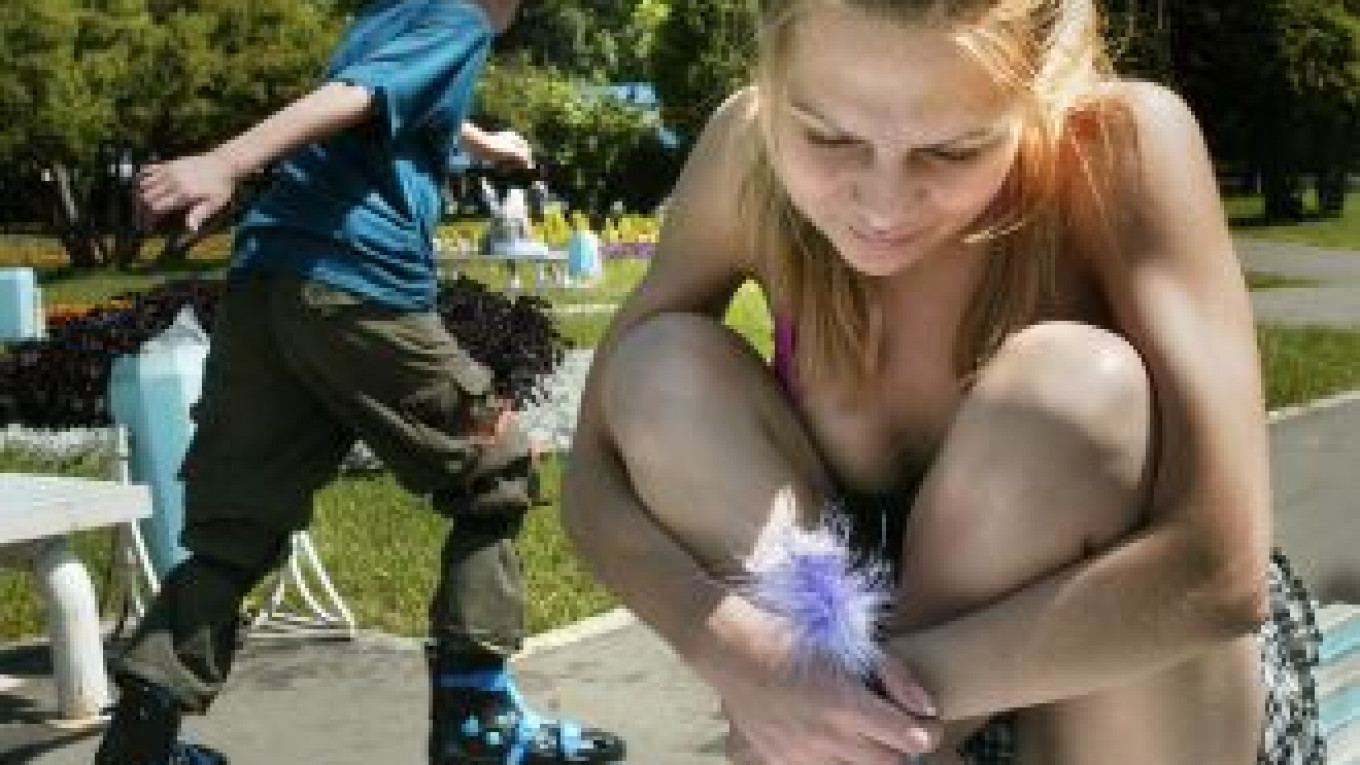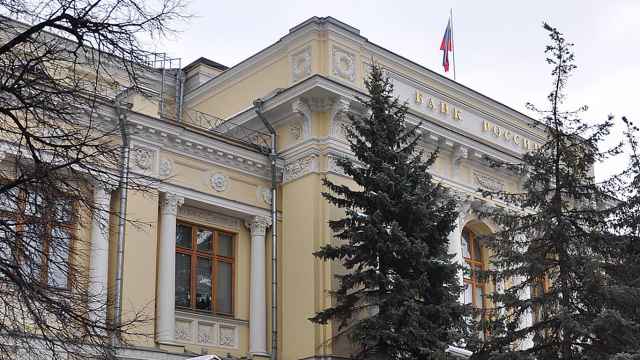In the manner of Peter the Great, who sent court nobility to study abroad to modernize the country, the government will pay for a foreign education of university graduates who promise to return home to work for three years.
The program, called Global Education, will see 3,000 university graduates study abroad on the government's dime over the next three years for a degree in social services, high technology, state and municipal government, or higher education management. The government designated these fields as being of high priority to the economy.
"The only effective way to attract a big number of highly qualified specialists to Russia in the next three years is to finance their studies," said Alexander Rusinov, a top official at the non-profit organization that drafted the program and will distribute the money.
But while educators and observers agree that most spheres of the country's life need modernization and that foreign experience can be useful, some fear that the program will be damaged by corruption, and others suggest that more money should be spent inside the country.
Rusinov heads the Young Professionals division of the Agency for Strategic Initiatives, or ASI, an autonomous non-profit organization founded on the order of former Prime Minister Vladimir Putin in August 2011, according to a note accompanying a draft government decree posted on the Economic Development Ministry's website. The agency is overseen by a supervisory board chaired by Putin, the organization's website says.
The program is set to begin sometime this year. The draft decree, which must be signed by the president some time before the start of the program, orders the government to finalize it by Sept. 1.
Alexander Logunov, dean of the faculty of history, political science and law at Russian State University for the Humanities, called the opportunity to study abroad for at least a year an undeniable need in the present age, saying it helps to "undo localism and tunnel thinking."
The first step for applicants to the program is to pass the Graduate Record Examinations test, or GRE, Rusinov said in an interview. The GRE is a standard requirement for applicants to American graduate schools.
Potential participants must then apply on their own to a master's, doctoral or postdoctoral program and pass the entrance exams at one of the 300 best universities on such lists as the Academic Ranking of World Universities, the QS World University Rankings and the Times Higher Education World University Rankings.
In late May, the government announced that it would acknowledge diplomas from 210 foreign universities featured on these lists without an additional state evaluation. The selected universities, located in 25 different countries, include world-renowned top-tier schools as well as lesser-known midlevel ones.
Britain's Cambridge, Oxford and York universities and famous American institutions including Yale University and Massachusetts Institute of Technology stand side by side with an assortment of U.S. state schools and specialty institutions like Rensselaer Polytechnic Institute.
The United States has the most universities represented on the list, with 66, followed by Britain with 28. Another 61 are located in other European countries, while China has 11 and Japan has nine.
Candidates who pass a university's entrance exams sign a contract with ASI for an education loan provided to them under obligation to work for the state or a private company for three years in the sphere in which they were trained.
A candidate can subsequently refuse to work under the contract but will have to pay back the loan with interest.
Artemy Shishov, a second-year history student at Moscow State University, said he would like to join the program and is prepared to change his plans for a future profession in order to study abroad.
Shishov has dreamed of becoming a journalist, which doesn't seem to fall into any of the four fields of study included in the program.
Everything will depend on how the program will be organized and who will be selected to take the first test, Shishov said, adding that the test may cost money or officials may try to select "their own people," such as friends, relatives or colleagues.
Shishov said he would rather work for three years under a contract in Russia than stay abroad and pay back the loan with interest.
"The diploma will not disappear, and I will gain work experience, after which I can go abroad if I wish," he said.
Will It Help Russia?
The spheres in which foreign experience is required were selected by a working group after consultations with interested federal agencies, Rusinov said.
The working group also consulted surveys and recruitment agencies to learn about the state of the job market, he said.
Rusinov predicted that the quality of state management would improve in the selected spheres and that work productivity would grow.
Andrei Fursenko, who served as education minister from March 2004 to May 2012 and is now in charge of an education-related advisory body in the Kremlin, warned that the program would work only if is effectively organized.
Only those who know what they want to do in their lives and how to achieve it should be sent abroad, not those who have just finished university, Fursenko told The Moscow Times on the sidelines of last month's St. Petersburg International Economic Forum. He also noted that Kazakhstan's government had launched a similar program, but later had to scrap it.
President of the All-Russian Education Fund Sergei Komkov warned that the limited scope of the program could mean it will have little effect.
He said that in theory, foreign experience could improve Russia's level of innovation, but that foreign education for a relatively small group of students can't significantly influence the country's development.
The program's effectiveness could also be constrained by the need for students to adapt the knowledge they gain abroad to their home environment, said Alexander Logunov, of the Russian State University for the Humanities.
One's education is shaped by the specific social, cultural and business context in which it is acquired, and adapting it to Russia would require additional educational efforts, Logunov said.
Some regional governments have voiced readiness to support and co-finance the program.
"Our region is in great need of highly qualified personnel," Alexander Anikeyev, head of the science and education department of the Kaluga region, said in emailed comments. "The development of high-technology industries in the region is far ahead of the professional education here."
There is also the potential that the program will be used to create a corps of pro-Kremlin workers, said Alexei Mukhin, general director of the Center for Political Information, a think tank. Asked whether Putin was trying to build such a team of loyalists given that foreign graduates will hold senior executive positions rather then do research, he said that this was quite possible.
Potential for Corruption
The government will allocate a minimum of 4.5 billion rubles ($150.1 million) for the participating students' expenses, including those for tuition, transportation, accommodation, medical insurance and others, said Rusinov, of ASI.
About 1.5 million rubles ($45,000) will be spent on each student based on the average cost of education at the world's leading universities, calculated by ASI, the note accompanying the decree to create the program said.
Expenses exceeding the average cost, including related expenses, "may be paid" by the program participant, the note said.
Valentin Preobrazhensky, vice president of the Harvard Club of Russia, a Moscow-based social club whose members are alumni and associates of Harvard University living in Russia, said education and living expenses combined at Harvard cost about $70,000 per year.
At a "second-tier" university, such as one in the top 50 universities in leading ratings, education and related expenses may cost $55,000 to $60,000, Preobrazhensky said.
ASI will receive about 500 million rubles ($15.1 million) for the program's implementation, including staff salaries, office rental, travel expenses, public promotion of the program and unforeseen expenses, the note to the decree said.
The government is expecting private sponsors to pay for about the same number or more students, Rusinov said.
Komkov, of the All-Russian Education Fund, voiced concern that mostly children of officials and lawmakers would be sent for studies abroad within the program given that yearly state expenses for a student's education in Russia equal around $2,000, versus $45,000 that the government plans to spend on one student in the program.
Komkov also fears that if the money for education doesn't go directly to universities through intergovernmental agreements, but instead through some organization, a minimum of 30 percent will go into the pockets of this organization's founders.
Logunov waved aside a concern that officials could abuse the program to send their children abroad, saying that they have abundant benefits as it is.
He also pointed out that children of officials could benefit from a quality education, too, especially under circumstances in which their parents can't influence their academic performance.
Effect on Russian Education
Komkov pointed out that approaches to and standards of higher education in Russia and in the world's leading developed countries were "fundamentally different" despite the fact that Russia in 2003 signed on to the Bologna Process, a series of intergovernmental meetings and agreements designed to ensure comparable educational standards among European countries.
It would therefore be "more sensible" to spend the money on bringing Russia's standards in line with international ones and to send professors to study abroad so that they could make vital changes to the higher education system, Komkov said.
Money should also be spent on improving the materials, technical equipment and training facilities of Russia's universities, he said.
"They should increase the financing of higher education in Russia by two or three times instead of throwing a handout in the form of 5 billion rubles, most of which will go to crooks and officials' children," Komkov said.
But Komkov cautioned that an increase in spending should not go hand in hand with the reduction in state-funded places for students at universities that Education and Science Minister Dmitry Livanov recently proposed.
Rusinov argued that a significant amount of money is already poured into Russia's higher education system each year, but that efficiency remains extremely low and most graduates don't work in their field of training.
Rusinov also said that the government and ASI were eager to pay for the education of future university professors.
He said the Global Education program is an investment in Russia's higher education through investment in the skills that are most in demand in the sphere of higher education management.
"This is more effective than simply handing out money to universities," Rusinov added.
Preobrazhensky, of the Harvard Club of Russia, argued that the prestige of Russia's higher education system is directly proportional to the number of students sent to study abroad at the state's expense.
The United States, China and Singapore are among the leaders in terms of financing the studies of their citizens abroad, and the prestige of education in these countries is either high or growing rapidly, Preobrazhensky said.
In contrast, no Russian university has made it into the top 200 of the most prominent education ratings, he said.
The program will bring to Russian universities professors and rectors who are prominent internationally and will move them up in the world ratings, Preobrazhensky said.
He said that Russia has major demand for progressive economists and state managers, adding that only 20 percent of Russian economists have been published in world-renowned journals and that none of these 20 percent officially worked for the state.
Logunov, of the Russian State University for the Humanities, said the 4.5 billion rubles allocated for the program could exert little influence on the economics of Russian higher education if given to Russian universities, but that the money could be rather useful as funding for a target program for foreign studies.
Oleg Smirnov, an expert with the All-Russian Education Fund, predicted that Russian graduates would not want to return home.
"Why come back to the totally destroyed production sphere?" Smirnov said. "There will not be enough patriotism to put effort into the development of our production," he said.
After getting a high-quality education abroad, Smirnov said, a Russian student would get a desirable job abroad, and even the need to return the state loan with interest would not "scare" him into returning to Russia.
Staff writer Alexandra Odynova contributed to this report.
A Message from The Moscow Times:
Dear readers,
We are facing unprecedented challenges. Russia's Prosecutor General's Office has designated The Moscow Times as an "undesirable" organization, criminalizing our work and putting our staff at risk of prosecution. This follows our earlier unjust labeling as a "foreign agent."
These actions are direct attempts to silence independent journalism in Russia. The authorities claim our work "discredits the decisions of the Russian leadership." We see things differently: we strive to provide accurate, unbiased reporting on Russia.
We, the journalists of The Moscow Times, refuse to be silenced. But to continue our work, we need your help.
Your support, no matter how small, makes a world of difference. If you can, please support us monthly starting from just $2. It's quick to set up, and every contribution makes a significant impact.
By supporting The Moscow Times, you're defending open, independent journalism in the face of repression. Thank you for standing with us.
Remind me later.






